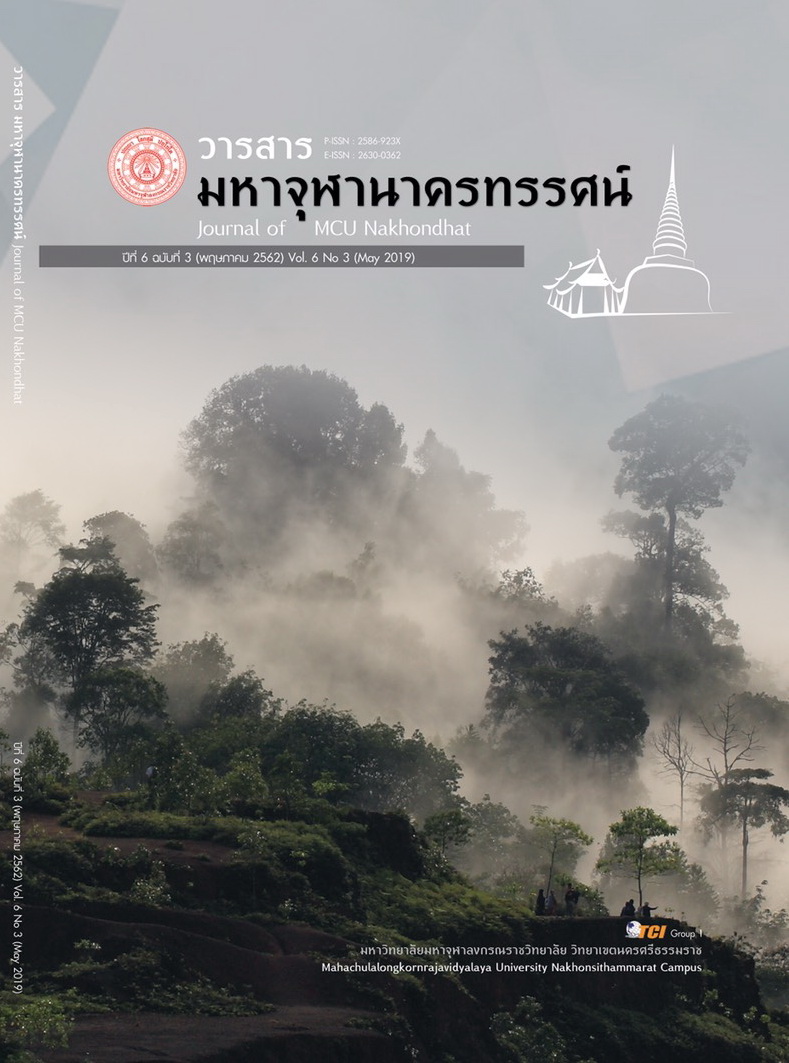PROBLEM ABOUT RIGHTS OF SUSPECT IN SPECIAL SECURITY LAWS CASE TO ACCESS THE CRIMINAL PROCEDURE DUE PROCESS OF LAW.
Main Article Content
Abstract
This research aims to 1) study and analyze the rights of suspect in the special security laws case which is not equal to the rights of suspect under the Code of Criminal Procedure, 2) study and analyze the differences of the rights of suspect in special security laws case in Thailand and the rights of suspect in special security laws case in foreign countries and 3) compare and investigate the problems and solutions about the rights of suspect under the Code of Criminal Procedure and the rights of suspect in the special security laws in Thailand and foreign countries. This study adopted the Qualitative Research method including the document analysis and In-depth Interview of concerning people in the area governed by the special security laws.
The results of research were found as follows;
The suspect in the special security laws case failed to obtain the right equal to a suspect under the Code of Criminal Procedure, namely the right to be presumed innocent until proved guilty undoubtedly, the right to be aware of accusation and fact about offence, the right in Miranda Warning, the right to silence, the right to counsel or having trusted person, the right of child or youth suspect and the right of female suspect. According to the comparative study of the rights of suspect in special security laws case in Thailand and the rights of suspect in special security laws case in foreign countries, it found that most treatments towards suspect in foreign special security laws accorded with the rights of suspect under the Code of Criminal Procedure in all aspects. The rights and freedoms of suspect in foreign countries were secured principally except certain exceptions and conditions to restrict their rights for public protection. Competent Official who committed the offence faced specific penalty. Differently, these foreign countries failed to establish the rights of female suspect. The result suggested that the research results should be adopted in the amendment of the special security laws and relevant laws
Article Details
References
เกรียงไกร เจริญธนาวัฒน์. (2547). หลักกฎหมายว่าด้วยสิทธิเสรีภาพ. กรุงเทพมหานคร: วิญญูชน.
เกียรติขจร วัจนะสวัสดิ์. (2551). คำอธิบายหลักกฎหมายวิธีพิจารณาความอาญาว่าด้วยการดำเนินคดี ในขั้นตอนก่อนการพิจารณา. กรุงเทพมหานคร: จิรรัชการพิมพ์.
คณิต ณ นคร. (2555). กฎหมายวิธีพิจารณาความอาญา. กรุงเทพมหานคร: วิญญูชน.
คะนึง ฦาไชย. (2551). กฎหมายวิธีพิจารณาความอาญาเล่ม 1. กรุงเทพมหานคร.
จรัญ ภักดีธนากุล. (2553). กฎหมายลักษณะพยาน. กรุงเทพมหานคร: สำนักอบรมศึกษากฎหมายแห่งเนติบัณฑิตยสภา.
ณรงค์ ใจหาญ. (2556). หลักกฎหมายวิธีพิจารณาความอาญาเล่ม 1. กรุงเทพมหานคร: วิญญูชน.
UK government. (2006). The Terrorism Act 2006. UK: The Stationery OYce Limited under the authority and superintendence of carol Tullo, Controller of Her Majesty's Stationery OYce and Queen's Printer of Acts of Parliament.


